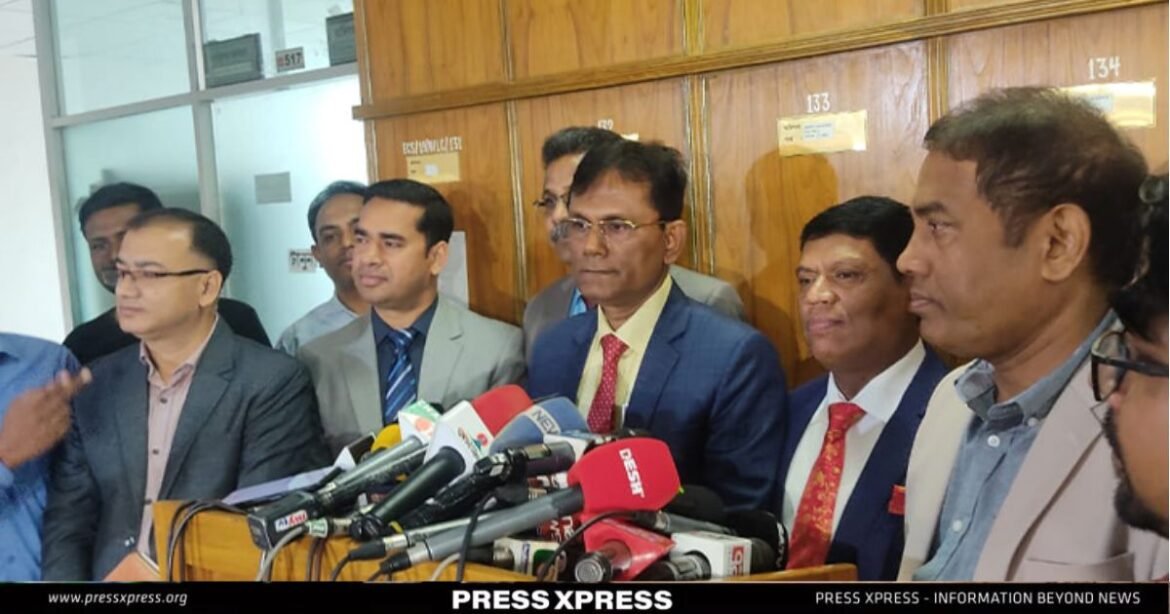The European Union (EU) will monitor the electoral situation throughout the entire country in preparation for the upcoming 12th National Parliament elections. They will assess the pre-election, election-time, and post-election environments. Election Commission (EC) Additional Secretary Ashok Kumar Debnath confirmed this matter after a meeting with the EU’s technical expert team on December 3.
You Can Also Read: BNP-Jamaat Can’t Derail Election Path
Ashok Kumar Debnath stated, “We had a meeting with them. They expressed their interest in observing election issues throughout the country until January 23. They inquired about various aspects, and we provided them with the necessary information. They were particularly interested in the number of candidates and observers attending the election.”
In response to a question, he mentioned that they were primarily interested in reviewing the laws, and they also requested the English translation of Bengali laws. They have a plan to visit the entire country and, if needed, will hold discussions with the commission.
The EC official mentioned that the EU election expert team is interested in gathering information on all issues, including election violence. They plan to tour the country, and for that reason, we will assist in addressing security concerns. We have already confirmed this. If they travel outside Dhaka, they will notify the Ministry of Foreign Affairs due to security considerations. They intend to provide advance notice in such cases.
On November 28, EU Ambassador to Bangladesh Charles Whiteley confirmed the arrival of a four-member experienced technical team to monitor the 12th national election process. He expressed optimism that Bangladesh would conduct a democratic, credible, peaceful, and participatory election. These remarks followed a meeting between an EU delegation and Chief Election Commissioner Kazi Habibul Awal and his colleagues at Nirbachan Bhaban in the city.
EU Changes Decision on Election Observers
On September 21, the European Union (EU) informed the Election Commission through an email that due to ‘budget constraints’, they had decided not to send observers for Bangladesh’s upcoming national elections. Quoting the email, Election Commission Secretary Md Jahangir Alam mentioned that the EU expressed gratitude for the productive meetings during the EU delegation’s visit to Bangladesh in July and expressed the intention to maintain regular communication with the commission.
According to the EC official, the email also mentioned that the EU is exploring alternative options to engage with the electoral process.
Earlier, on July 9 of this year, a six-member Election Exploratory Mission from the EU visited Bangladesh to observe the political situation ahead of the national election. In the weeks following their arrival, the delegation conducted meetings with high-ranking officials from government bodies, including the foreign ministry, National Human Rights Commission (NHRC), Bangladesh Police, Ministry of Chittagong Hill Tract Affairs, the attorney general, home affairs ministry, information ministry, and law ministry. During these meetings, the delegation inquired about the potential for violence before the upcoming national election, security measures during the polls, and the overall human rights situation.
No EU Observers in the Last Two Elections
Even though Bangladesh had the last two elections under the same government, the EU didn’t send observers in 2014 and 2018. They last sent observers during the 2008 elections.
In 2018, the head of the EU delegation in Dhaka told then Chief Election Commissioner KM Nurul Huda that they wouldn’t be sending an election observation mission. The EU didn’t give a reason for this decision but mentioned sending two experts to work on the electoral process and provide recommendations to the European Commission. Since then, Bangladesh hasn’t received any updates on their visit, recommendations, or the purpose of the exercise.
The former EU Ambassador to Bangladesh, Rensje Teerink, explained that sending a credible observer mission is quite expensive, involving a large number of observers and months of preparation.
She stated in an interview, “We have, therefore, decided not to send a team this time. That doesn’t mean we won’t follow these elections. We will pay close attention to the developments in the country.” She also highlighted that the time available for the mission and security constraints in certain places were crucial factors in their decision-making process. It is worth noting that a total of 2,712 candidates, representing 29 political parties and independents, have submitted their nomination papers for this year’s parliamentary elections. Following the schedule outlined by the Election Commission (EC), the scrutiny of nomination papers will persist until December 4. From December 5 to 15, appeals against the decisions of the Returning Officer can be submitted and addressed by the Commission, with the final date for the withdrawal of candidature set for December 17. The allocation of symbols by the returning officers is scheduled for December 18. The election campaign will be ongoing until 8 am on January 5, leading up to the voting day on January 7, 2024 (Sunday).


